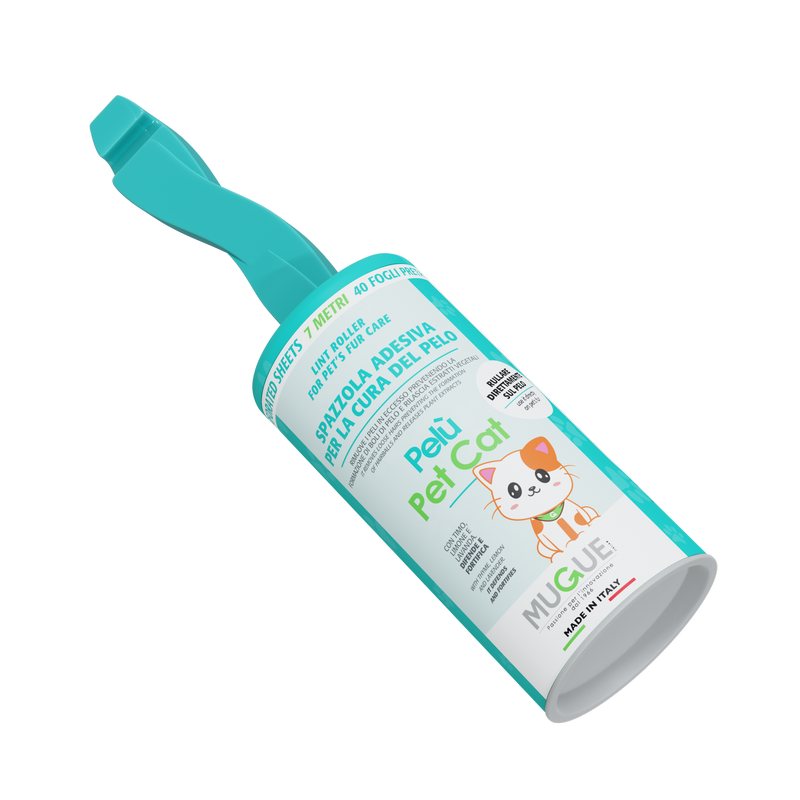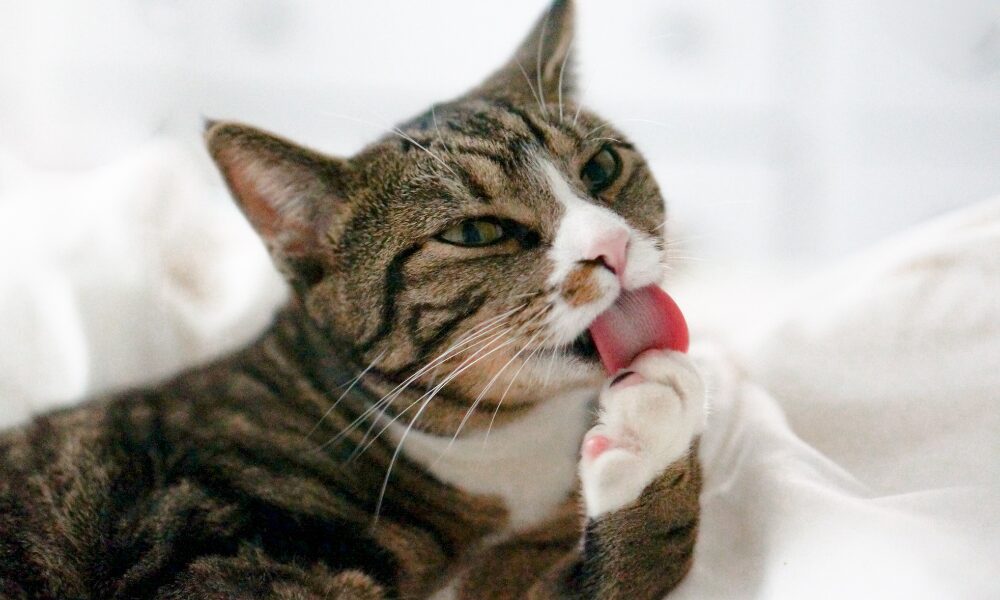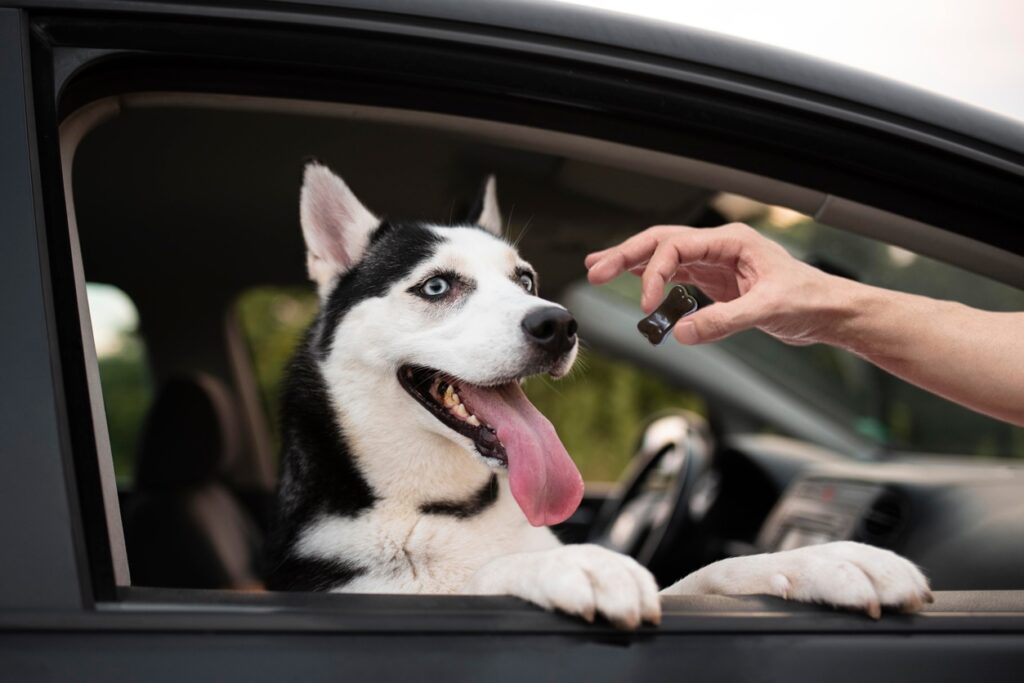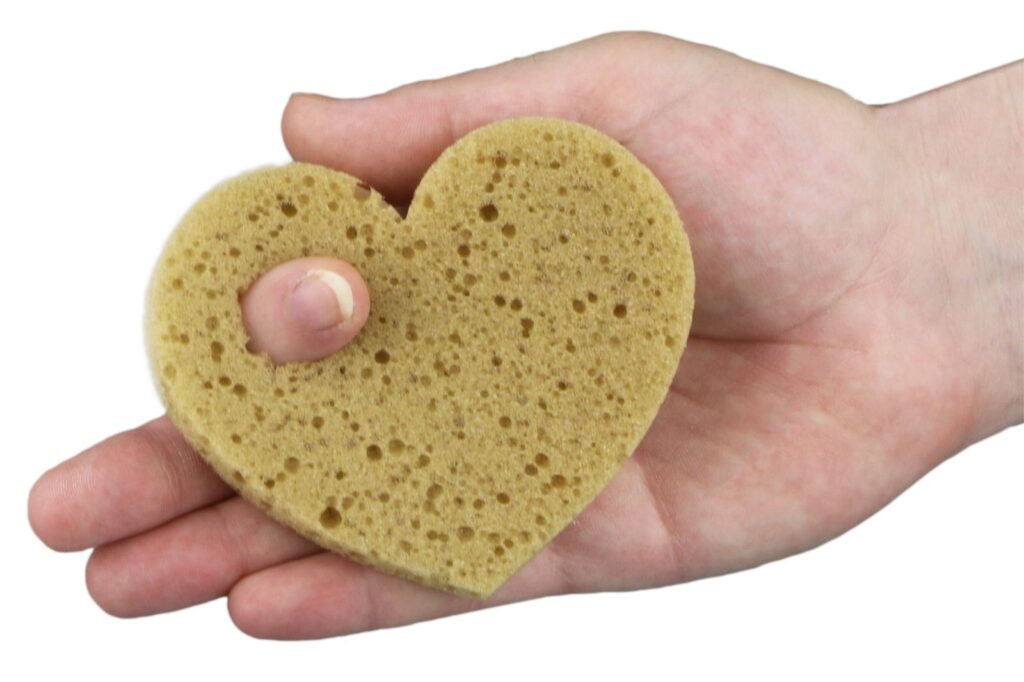It is normal for cats to groom themselves. After all, grooming helps remove dead hair, dirt, and parasites from their fur. However, it can happen that the time spent grooming, licking, and nibbling themselves becomes excessive, suggesting a problem.
When it comes to overgrooming in cats
Overgrooming is when a cat grooms itself more than necessary. If your cat licks itself too much, it may lose streaks of fur along its back, belly, or the inside of its paws. These areas can even lose their fur entirely.
This condition can lead to the development of additional problems. For example, cats that like to lie in the sun can get sunburned. Or, excessive grooming can cause rashes and open sores on the skin, potentially leading to a secondary bacterial or yeast infection.
Not only that, a cat that grooms itself too much can develop an unusually high number of hairballs that, if not expelled, can cause constipation or cause intestinal obstructions due to the accumulation of fur in the digestive tract.
A very useful tool is Plush Pet Cat, brush with premium adhesive created specifically for cat fur and enriched with pure plant extracts (Lavender, Lemon, Thyme), designed to remove already detached hair, preventing the formation of hairballs.

Why does the cat overgrooms itself?
If your cat spends all his time licking himself, you must first figure out what is causing this behavior. Taking him to the vet is the best solution.
First, cats may lick themselves excessively because their skin is irritated, whether from an infection, an allergy to certain foods, parasites, or substances in the environment. The way the hair loss occurs can suggest the source of the problem: if there is irritation at the base of the tail, it is likely that the cat is allergic to fleas; if the hair is falling out and there are crusts on the neck and ears, an allergy to ear mites may be the cause. Meanwhile, excessive nibbling of the paw pads may suggest an allergic reaction to pollen.
In other cases, your cat may groom excessively because they are in pain or discomfort. For example, back pain may cause them to lick a specific part of their back excessively, while a urinary tract infection or blocked anal glands may encourage excessive grooming of the lower belly, genitals, or area around the anus.
Finally, some cats use excessive grooming as a way to cope with stress or boredom; experts believe that licking releases endorphins that can help relieve anxiety. Compulsive grooming that leads to hair loss, known as psychogenic alopecia, is usually triggered by a change in the cat’s daily routine or environment, such as moving to a new home or the arrival of a new family member. But cats are also highly intelligent and prone to boredom if their daily routine is not adequately enriched; this is the main cause of excessive grooming in indoor cats, who are alone for most of the day. In these cases, grooming helps compensate for the lack of mental or physical stimulation. This condition can occur in any breed, but is most common in Siamese, Abyssinian, Burmese, and Himalayan cats because of their sensitive personalities and desire for attention.
How to stop your cat from overgrooming
Always make an appointment with your vet if your cat over grooms itself.: only a professional can make a diagnosis, prescribe any medical treatment and provide suggestions to discourage the habit.
Treatment and intervention methods always depend on the cause of the licking. Infections and allergies require antibiotics, antihistamines and/or anti-inflammatory drugs, while an annual flea and tick treatment can help prevent allergies to fleas and ear mites. If the excessive licking is due to pain, your veterinarian will be able to determine and manage the cause.
If there is no medical reason for your cat’s behavior, you may need to take some precautions instead. If excessive licking is related to stress, try creating a comfortable environment and establishing a predictable schedule: clean the litter box at least once a day and keep meal times consistent. Mental and physical enrichment can also help with excessive grooming, as it distracts the cat and leads to the release of endorphins. Create a stimulating environment, with different types of toys, scratching posts, and climbing areas, and provide your kitten with frequent play opportunities (two 10-15 minute sessions a day is ideal).
The most important part of managing excessive grooming, however, is to be patient. If you see your cat licking excessively, don’t punish him or try to interfere; this will only increase his stress levels, making the problem worse. Once you’ve identified the cause, it may take several weeks for everything to resolve and the fur to start growing back.





